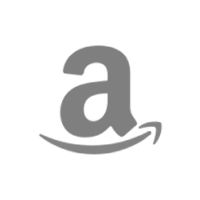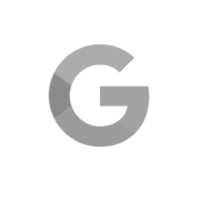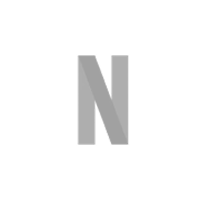There are entire industries built on the idea of making you more productive. David Allen is a wealthy man, in part, because he founded a company that helps people get things done. I’m not David Allen, but I have been able to achieve a modicum of productivity. In the article that follows, I’ll share three hacks that have helped me to become productive.
These are “hacks,” not general philosophical guidelines for being a more productive human being. As far as philosophical guidelines go, I’ll offer two principles. In order to be most productive, you must find 1) your own personal rhythms, and 2) the right working environment. I’ve discovered that working from 6:30am to 12pm allows me to accomplish a gargantuan amount of work, simply because this is when my mind and body are primed for their coherency and mental energy. My work environment is remote, which means that I seek refuge in a local coffee shop with my Macbook Pro and bluetooth headset. (The headset is intended to send a subtle message to potential conversationalists that I am audibly indisposed.)
These two factors — time and environment — are my starting point for productivity. Everyone’s own starting point or foundation will be different. The key thing is to find what works best for you.
Philosophical guidelines aside, here are three hacks that can add at least a solid hour to every day of your life — and probably some more life to your day, too.
1. “Do Not Disturb.”
For the most part, you possess the power to say “no” to distractions in your workday. (As a dad who occasionally works from a home office, I recognize that there are exceptions to this general principle.) Distractions are one of the biggest time-wasters in every day. It requires immense mental energy to recover from a distraction. Humans are not wired to multitask.
Saying “do not disturb me” is not about being an ogre to people who want your time or companionship. Instead, it allows you to have a focused time of productivity whereby you can give such people your undivided attention or affection. “Do not disturb” is a legitimate boundary. You, as a human being, should have the ability to set boundaries that allow you to be productive, happy, and efficient.
Look at it this way. I can spend two hours being a nice guy to the office yappers, tapping off Twitter IMs, and trying unsuccessfully to get my real work done. At the end of those two hours, I’ll be frustrated, grouchy, and way behind in my work. Or, I can spend an hour of focused, driven Do-Not Disturb work. During that hour long blaze of productivity, I will achieve enormous amounts of work with zero distractions. Then, I’ll have an hour to engage with people, dash off Twitter messages, and smile at the world without the bugging pressure of knowing that I’m supposed to be getting stuff done.
Here are some practical suggestions for doing the Do Not Disturb thing.
- Use the Do Not Disturb function on your phone. A smartphone is the incarnate evil of disturbances. I usually just put my phone out of sight, and click off the volume.
- Disable popups. If you use one of those programs that makes everything pop up on your computer screen — emails, Tweets, notifications, IMs, etc., — turn it off.
- Put up your Do Not Disturb sign. I use the IM client, Adium, and place a Do Not Disturb notification here when I’m in my zone. If you have a physical office, make a sign, and hang it on your door or across the entrance to your cubicle.
2. Totally unplug for at least one hour in the middle of your day.
I am personally incapable of working at insanely long stretches. In keeping with the Flow theory of Mihaly Csikszentmihalyi, I sometimes find myself in a flowing stream of productivity, but it doesn’t carry me for hours on an uninterrupted ride of unabated productivity. Instead, I’ve found the value of breaking my day into blocks of productivity.
Most people are able to sustain focused concentration on a project for 90 minutes. After the 90-minute period, concentration begins to wane and efficiency begins to diminish. I’ve incorporated this 90-minute principle by breaking my morning work hours into two main sessions. Later, when I return to work in the afternoon, I use the same 90-minute principle to achieve another burst of productivity. On the occasions where I work at night, I use a shorter sixty-minute burst to do the same thing.
To meander back to the point, these sessions of productive work logically require a break in between them. I personally choose to have my break in the middle of the day. This allows me the time to fuel up with a healthy meal and spend time with my children. (I have three young ones.) They take a break, I take a break, and we all chill together, often at the playground. While there, I could snag an few minutes of work from my phone. But I don’t. (Most of the time.)
Instead, I’ve found that a solid time of absolute awayness helps me to be even more productive when I return to work. I usually come back with some fresh ideas, creative inspiration, article ideas, or business-building insights.
3. Confine email to chunking sessions.
This is, perhaps, my most practical and directly time-saving ideas: Confine your email to chunking sessions.
I’ve heard people say, “I get hundreds of emails a day!” And I thought, “Ha, yeah right. If she’s telling the truth, they’re probably all junk marketing emails!” I used to scoff at people who claimed to get (or send) hundreds of emails a day.
And then I became that person who was receiving and sending hundreds of emails a day.
How in the unbelievable world was I going to live my life spending nineteen hours a day on email, and turning into a caffeine-fueled freak?
Thanks to some advice from Tim Ferriss, I was able to break free. Ferriss, in his book Four Hour Workweek advocates the “chunking” approach to email. Basically, what I did was confine email to its own constricted chronological realm.
For one hour, I would do nothing but email. And then, when my email was done, I closed it up and walked away (in a digital manner of speaking). The productivity boost I accomplished by breaking free from the always-open, always-responding, always-reading, always-checking was incredible!
Email was a monster. Yet I tamed it using nothing but a clock.
I used to check my email only at 11am and 4pm, which at first made me feel like a Luddite. In my erstwhile lifestyle of stunted productivity, email was always open, always on, and always distracting me to pieces. But when I turned it off, I suddenly discovered vast frontiers of time that I didn’t know existed.
Because I now work in an email intensive environment with email as an integral component of my responsibilities, my strict 11a and 4p approach has changed. I “check” more frequently, and spend more time on email.
However, I realize that email is a tool. It’s not my master. I choose to master email. I tell it when it gets to come out of the cage. And me? I get more stuff done.
Here’s what productivity coach Jared Gorlanick wrote:
Most people spend more time during the week on email than they do with their families. They also lose a quarter of those days to recovering from interruptions, primarily due to email.
Email doesn’t deserve its position as the monumental mother of all time wasters. Instead it can be controlled by confining it to periods of focused time throughout the day.
I haven’t opened a single email since I began writing this article. Now, if you’ll excuse me, I have fifty-four emails that I have to respond to since I had my last email chunking session.







